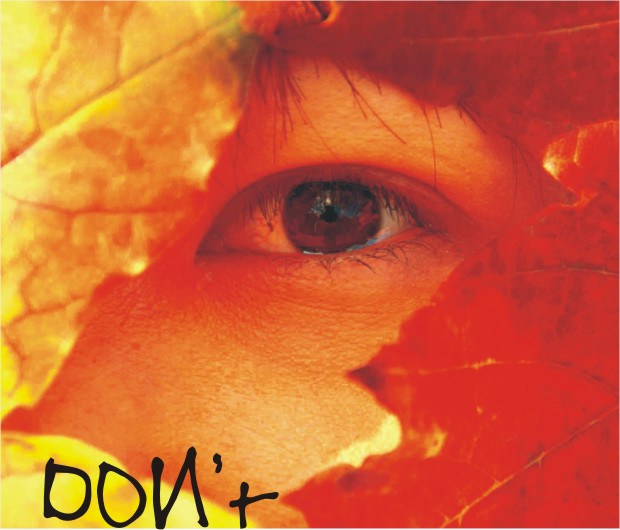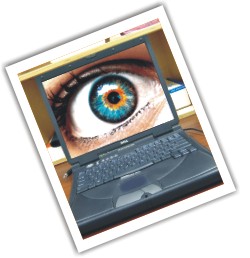 Talk To Strangers
Talk To Strangers
By Orin
 It's two in the morning and you seemed to have lost your ability to fall asleep. There you are, sitting slightly hunched over, refreshing your Facebook page in the hopes of seeing what the other night owls are up to. You can see that your ex-best friend is online, and the girl he has a crush on; you see the most popular girl in class just updated her profile picture (the picture taken that day, during a hangout where they 'forgot' to invite you), you see online the weird creepy guy you don't really like but had to 'friend' anyway, because all your friends seem to find him funny.
It's two in the morning and you seemed to have lost your ability to fall asleep. There you are, sitting slightly hunched over, refreshing your Facebook page in the hopes of seeing what the other night owls are up to. You can see that your ex-best friend is online, and the girl he has a crush on; you see the most popular girl in class just updated her profile picture (the picture taken that day, during a hangout where they 'forgot' to invite you), you see online the weird creepy guy you don't really like but had to 'friend' anyway, because all your friends seem to find him funny.
You wonder what they are doing. You end up flicking through their albums, even the ones that you probably wouldn't even be allowed to see, reading what they are saying to their friends, reading through what they are not, you are not interacting; but you feel connected. It's pushing 4:30 in what seems like only half an hour and you have an early class. Yet you don't want to let go. This is where all the people are at. By then your mom wakes up for prayers and sees you wide awake. She doesn't start yelling because everyone else is asleep, but she threatens to pull the plug if you don't go to bed right away. It is a laptop, but you oblige anyway.
In that early sleepless morning, your insomniac brain realises that you don't really know anyone anymore. You have an idea of what's happening, you see the pictures, the videos, the newest acronyms, you adapt yourself for that world online, but you just never get to see it. What you also realise is that neither does anyone else.
That doesn't stop anyone from joining though. The constant need to feel connected and the inability of ever doing so seems to be everybody's woe these days.
The social networking sites that we are constantly logging into have the right to use or sell our information to other companies for business purposes. And they do, and when it happens, we are surprised, offended even. What we forget is that these are companies just doing their businesses, and their assets are the millions of people who fervently submit all their information. Some don't care if they are doing it. Akif, a 12th grader says, “What would they do with my information? I only have a few photos posted up on the net and it's not like I am somebody famous or something.” The fact that collective information is a powerful weapon to have is a notion that seems like something only a conspiracy theorist would say.
There are people with other opinions as well. Fuad, a university student finds it rational. “As far as I know, search engines like Google also have maintained all the information of our search history. It is time for us to behave rationally and use these social networking sites and search engines carefully. We have to realise that networking sites are not our friends,” he expresses.
Facebook, Myspace or Twitter however are not even half the problem today. We are familiar with the garden variety stalkers, going through our photos, videos and conversations with friends, but then there comes the trolls who have the capability of ruining our lives while laughing at us from 10000 miles away.
For those who are not familiar with the term, “Troll” denotes someone who intentionally disrupts online communities, pushes people's buttons and basically is a jerk on the Internet. Some online forums give their users ultimate anonymity and they make horrible uses of that. What they do goes way beyond traditional pranks and can cause substantial damage to innocent peoples' lives.
In 2006, Mitchell, a seventh grader from the United States committed suicide, reasons for which are still unknown. His classmates made a Myspace page as a memorial for him, and a certain forum where users are anonymous decided that references of a lost iPod in Mitchell's Myspace page was 'funny'. They got hold of the boy's address, his parents' phone numbers and even the address of the cemetery where he was buried. They called his parents day and night for almost a year, posted his photos on adult sites, posted videos of him parodying his death and even placed an iPod on his grave.
This is just a reflection of the growing Internet subculture with its fluid (and sometimes non-existent) morality. There are hundreds of stories like this happening everywhere, everyday. People (especially tweens and teens, who are the most vulnerable) are losing their lives, and there is hardly any law preventing them from doing whatever they are doing. Some of what is being done could be dubbed as 'immoral' maybe, but it's still not illegal. Some countries are trying hard to adapt their laws to fit, but it is no easy task when the scene is changing so rapidly.
Even if they can make rules and regulations, most users would not want to be policed on the Internet. Internet to us is a media that's still free.
We might think that we are so far away from the epicentre of trolls that we never have to worry about them hurting us. We forget that these are the bunch of people who feed on the suffering of others, who get 'lulz' from watching someone lose their head, putting an angry desperately embarrassed person in their most vulnerable state makes their day.
Our parents forbid us to talk to strangers on the streets, and being in Dhaka City, we oblige. Parents cannot see what their 12-year-olds are doing on those message forums. They cannot see what harm humans can do from thousands of miles away.
What can we do to make this stop? We simply have to stop reacting. It is tough and at times might seem impossible, but trolls will stop only when people stop giving them any attention. We have to understand that the Internet, like any media; can do as much evil as good, and that with anonymity, even the weakest can turn into monsters, and they usually do. What's left for us is to do what Internet guru John Postel once said. “Be conservative in what you do, be liberal in what you accept from others.”
Sources: The New York Times, Wikipedia.
NB: Title taken from the song of the same name by Dio.
